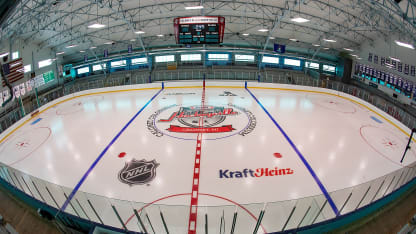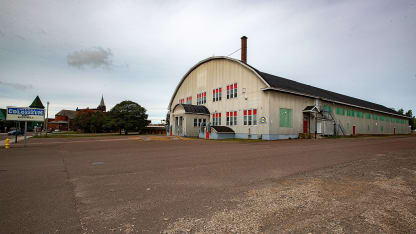"The dedication of the [Calumet Colosseum] was in December 1913, and the first hockey game played here was Jan. 6, 1914, so that was only a week or so after the dedication," said Paul Letho, who had been town supervisor in Calumet since 1972 before retiring last month. "This arena as we all know was built in 1913 and it's had a hockey rink in it from the day it was built. It was built as a community center and there's been hockey ever since."
Letho, 81, knows as much about the building as anyone.
"When I was 15 years old, I was even coaching here, so that was 66 years ago," he said. "I coached a Bantam team and a senior hockey team in the 1960s and high school of course for 18 years."
The rich history of the building goes beyond hockey, although that has always been a part it.
"I've been playing hockey in this barn for 15 years, but there are still times I find myself in complete awe of it," said Michael H. Babcock, who is on the Calumet Wolverines board of directors. "The banners draped across the walls, the impeccable sheet of ice we're lucky enough to skate on and the history you can feel just walking through the lobby."
That sentiment was echoed by many people including Bill Sproule, a historian and author of "Houghton: The Birthplace of Professional Hockey."
"There's great pride in this particular building," Sproule said. "In the 1940s, the armory burnt down, so the state of Michigan acquired the building. There were limited resources in the community, so this was a great way of recognizing hockey but also helping them develop this community building."
With the state acquiring the Colosseum in 1942, the name was changed to the Calumet Armory. For 60 years, the Calumet Hockey Association leased ice in the winter when the building wasn't in use.
In 2005, the National Guard moved to a new building, leaving the history of the rink in doubt because the state had no need for one nearly 100 years old. The thought of seeing the building torn down for some other purpose on the land did not go over well with many in the town.
Luckily, there was a solution.





